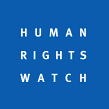The Campaign to Bring Hissène Habré to Justice - Phase I
Project location: Senegal, Chad
Project start date: January 2015 -
Project end date: May 2015
Project number: 2014-060
Beneficiary: Human Rights Watch
Since 1999, Human Rights Watch has been working with the victims of Chad's exiled former president, Hissène Habré, to bring him to justice. Habré is accused of thousands of political killings and systematic torture when he ruled Chad, from 1982 to 1990. He has been living since then in exile in Senegal, where he was indicted in 2000. After years of stalling by Senegal, under the new government of President Macky Sall, Senegal and the African Union (AU) signed an agreement on August 22, 2012 to establish the "Extraordinary African Chambers" in the Senegalese justice system with African judges appointed by the AU presiding over his trial and any appeals. The agreement came on the heels of a landmark ruling by the International Court of Justice on July 20, 2012 ordering Senegal to bring Habré to justice "without further delay" either by prosecuting him domestically or extraditing him for trial.
On July 2, 2013, Hissène Habré was charged with crimes against humanity, torture and war crimes by the Extraordinary African Chambers and placed in pre-trial detention. A trial is scheduled for 2015.
The advent of the trial, 25 years after Habré's fall, is entirely due to the perseverance of Habré's victims and their allies led by Human Rights Watch. When Habré was arrested in July 2013, the Toronto Globe and Mail praised the efforts to bring him to trial as "one of the world's most patient and tenacious campaigns for justice." The New York Times wrote that the "case has proved unusual for the tenacity of his victims, and of Human Rights Watch, in seeking to bring him to justice."
Le Monde hailed the creation of the Chambers as "a turning point for justice in Africa."
The most difficult and critical part of HRW's long campaign is yet to come, however. In order for the trial to live up to its historic potential, it must be fair, efficient, and transparent. HRW needs to ensure that Habré's alleged crimes are clearly detailed, the verdict based on accepted facts, and the trial widely broadcast to show to Africa and the world that an African court can deliver fair and impartial justice on behalf of African victims and that it is possible for victims - with determination and imagination - to bring a dictator to justice.
The most difficult and critical part of our long campaign is yet to come, however. In order for the trial to live up to its historic potential, it must be fair, efficient, and transparent. It is necessary to ensure that Habré's alleged crimes are clearly detailed, the verdict based on accepted facts, and the trial widely broadcast to show to Africa and the world that an African court can deliver fair and impartial justice on behalf of African victims and that it is possible for victims - with determination and imagination - to bring a dictator to justice.
The Nando Peretti Foundation has awarded a grant to support HRW's Campaign to bring Hissène Habré to justice.
Throughout the grant period Human Rights Watch will be present on the ground, working closely with its partners in Chad and Senegal to organize the most efficient defense possible of Habré's victims and to continue our media and public campaign throughout the trial and the appeal.
Habré's trial will mark the first time that the courts of one African country deliver justice for crimes committed in another. It will also mark the first time that a developing country has prosecuted alleged crimes on the basis of universal jurisdiction. Indeed it will be the first time that a court anywhere in the world has prosecuted the alleged human rights crimes of the former leader of another country.
As the campaign concludes with the trial of Hissène Habré and an eventual appeal, HRW will work to ensure that:
1) Plans for Habré's trial continue smoothly.
2) The victims' rights and interests are represented at all stages of the proceedings.
3) Habré is prosecuted for his most serious and representative crimes and the strongest evidence is presented.
4) African activists and victims maintain their role as leaders of the campaign.
5) The trial is broadcast and accessible to the Chadian people.
6) The trial is an occasion to seek broader justice for the victims and to advance the rule of law in Chad.
7) The trial is a transformative moment for African justice.
More information on the Habré case can be found here : http://www.hrw.org/tag/Hissene-Habre.





